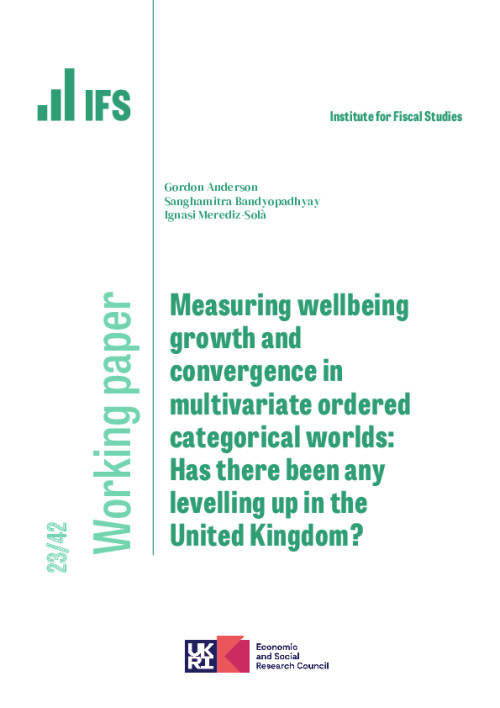Downloads

Download Working Paper
PDF | 548.18 KB
Measuring growth with ordered categorical variables is problematic due to their lack of cardinal measure and the equivocation and ambiguity inherent in the arbitrary attribution of cardinal scale to ordinal variates. Here, noting that the mean in a cardinal paradigm is the cumulation over its range of higher outcome probabilities and hence its growth is the rate of increase in those cumulated chances, application of the concept of probabilistic distance facilitates development of analogous implementable level and growth measures in ordinal paradigms that are independent of scale and unequivocal. An exemplifying analysis of the extent of “Levelling Up” growth and convergence in Income, Health and Human resources in the regions of the United Kingdom is performed over the period 2010 to 2018 prior to the Covid outbreak. The results indicate that, while there is strong evidence of growth, there is little evidence of levelling up type growth and hence little evidence of Levelling Up in that nation.
Authors

Research Associate University of Toronto
Gordon is a Research Associate of the IFS and a Professor in the Department of Economics at the University of Toronto.
Professor of Development Economics Queen Mary University London

PhD Scholar
Ignasi is a PhD Scholar at IFS and a PhD Candidate in Economics at University College London. His research interests are labour & spatial economics.
Working Paper details
- DOI
- 10.1920/wp.ifs.2023.4223
- Publisher
- Institute for Fiscal Studies
Suggested citation
G, Anderson and S, Bandyopadhyay and I, Merediz Solà. (2023). Measuring wellbeing growth and convergence in multivariate ordered categorical worlds: Has there been any levelling up in the United Kingdom?. 23/42. London: Institute for Fiscal Studies. Available at: https://ifs.org.uk/publications/measuring-wellbeing-growth-and-convergence-multivariate-ordered-categorical-worlds-has (accessed: 30 June 2024).
More from IFS
Understand this issue

Social mobility and wealth
12 December 2023

Sure Start achieved its aims, then we threw it away
15 April 2024

Why inheritance tax should be reformed
18 January 2024
Policy analysis

How do the last five years measure up on levelling up?
19 June 2024

Making mortgage guarantees permanent will help some first-time buyers, but only if they can afford a bigger mortgage
6 June 2024

What has happened to earnings since 2019?
31 May 2024
Academic research

Income inequality in Ireland, 1987–2019
28 June 2024

Components of the evolution of income inequality in Sweden, 1990–2021
28 June 2024

The impact of labour demand shocks when occupational labour supplies are heterogeneous
28 June 2024